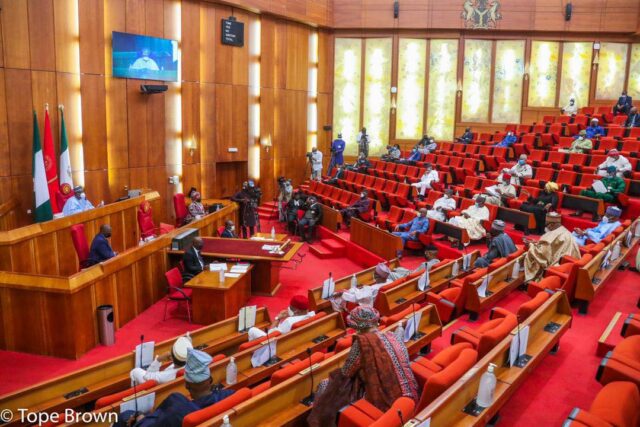By Chinasaokwu Helen Okoro
Following the striking out of the six-year tenure bill for the President, Governors, and Local Government Area Chairpersons by the House of Representatives, Accountability Lab (AL) Nigeria has called on Senators at the red chambers to also reject the bill should it get to the floor.
On July 17, 2024, the House of Representatives passed a bill through its first reading that seeks to amend the Constitution of the Federal Republic of Nigeria 1999 (as amended) to establish a single 6-year term for the offices of the President, State Governors, and Local Government Areas Chairmen.
This amendment aims to reduce the waste associated with periodic elections every four years. The bill seeks to alter Sections 7, 135, 137, 180, and 182(1) of the Constitution of the Federal Republic of Nigeria 1999 (as amended).
AL Country Director, Odeh Friday who made this call yesterday in Abuja in a statement commended the House of Representatives for rejecting the bill noting that the bill raises significant concerns about its implications for democratic principles and governance in Nigeria.
“In the same vein, we urge that this bill be rejected should it reach the Senate. This bill, which seeks to extend the tenure of elected officials, raises significant concerns about its implications for democratic principles and governance in our nation.”
According to Friday, the body believes that there are more pressing issues currently plaguing the country that need the urgent attention of the president, including insecurity, inflation, and human rights violations.
“In countries like Zimbabwe, where President Robert Mugabe extended his tenure through constitutional amendments, there was a notable increase in governance issues and reduced public accountability,” he said.
“Frequent elections ensure that leaders remain responsive to the needs and concerns of their constituents. Extending the tenure period from four to six years reduces the frequency of elections.
“Studies have also shown that electoral turnout often drops in midterm or non-election years. Nigeria’s 2019 general elections saw a voter turnout of 35.6%, a drop from 44.9% in 2015.”
Friday warned that longer tenures can erode democratic norms, leading to weaker institutional checks and balances and reducing the overall accountability of elected officials.
“For example, in Burundi, President Pierre Nkurunziza’s decision to extend his term led to significant political unrest and decreased trust in democratic processes,” he said.
The country director stated that the organisation firmly believes that the passage of the bill would be a step backward for Nigeria’s democracy, insisting that their concerns are not just theoretical but are based on a careful examination of the possible outcomes of the legislation.
“This kind of risk is beyond our means. We therefore urge the Senate to rather focus on strengthening the Electoral Act and ensuring the independence and accountability of the Independent National Electoral Commission,” he said.
“This will enhance voter registration, increase voter participation in elections, and improve the process of selecting effective and responsible political officeholders, ultimately fostering good governance.”
In this article
Senate


